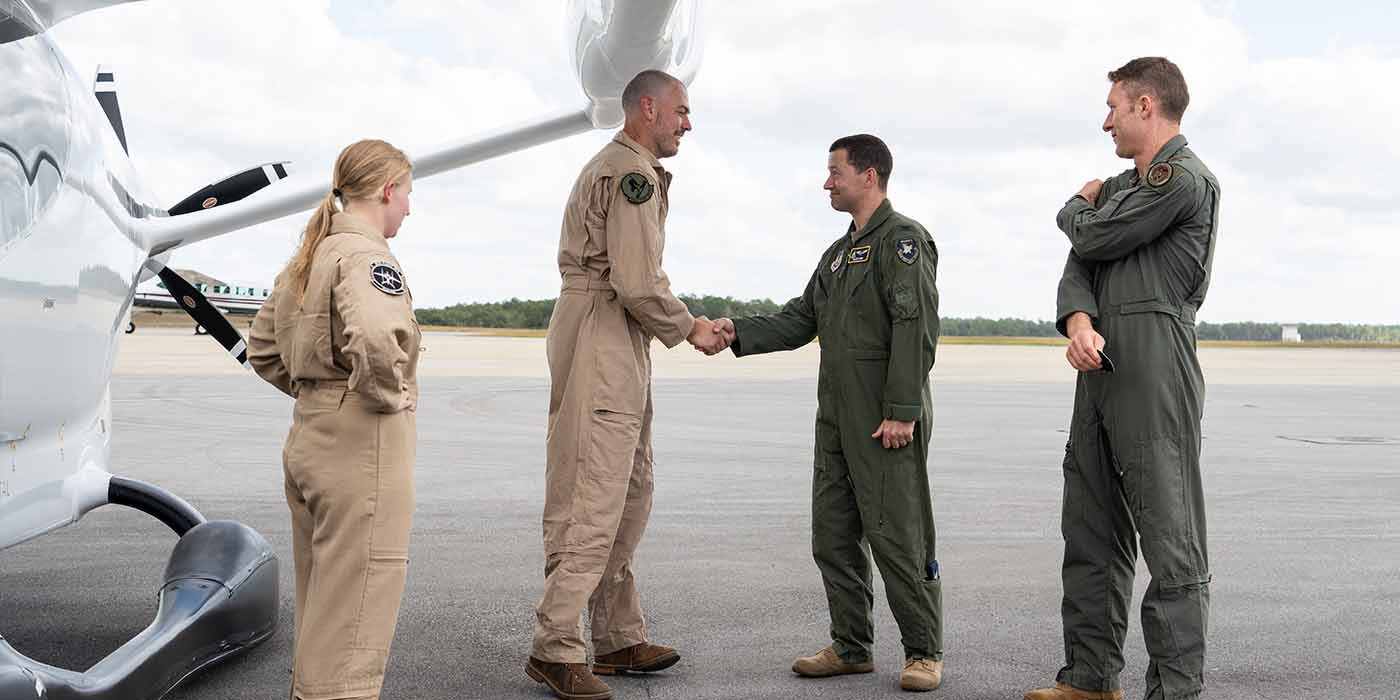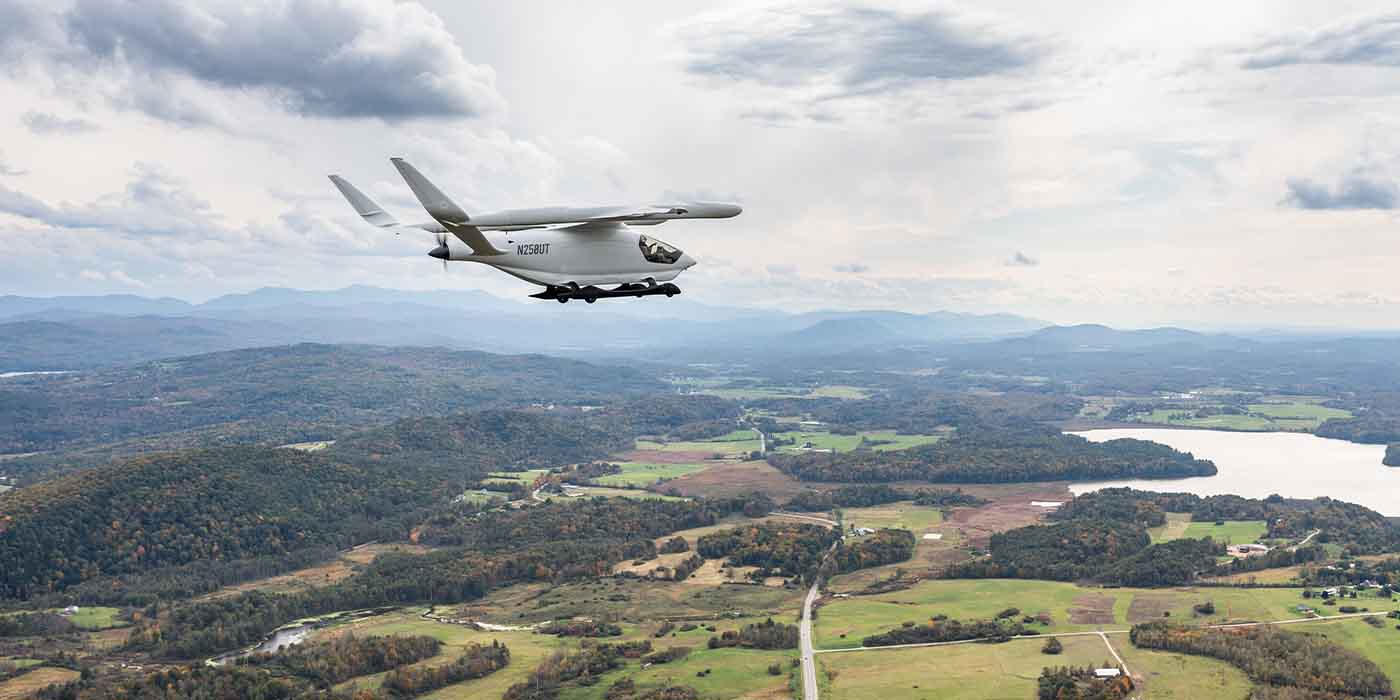
As part of a contracted deployment agreement with the US Air Force, eVTOL and eCTOL developer BETA Technologies has landed its ALIA aircraft at Duke Field, a subsidiary of Eglin Air Force Base, following a 2,000 mile journey across 12 states.
BETA Technologies operates as a fully-integrated electric aircraft and systems developer based in Vermont that caught our attention 2021 with the debut of its first aircraft – an eVTOL called the ALIA-250. That model has since been renamed the ALIA VTOL.
Since then, we ALIA VTOL has been joined by an electric conventional takeoff and landing (eCTOL) plane called the ALIA CTOL, which has already flown over 26,000 test miles to date and has undergone evaluation flights for FAA certification and is targeting full approval for commercial operations by 2025.
The ALIA CTOL made an appearance in North Carolina last week, sitting next to the podium has BETA held a groundbreaking event at a new aircraft charging site in the birthplace of flight. Also present at the ceremony was US Air Force project AFWERX, a partner in the charging product and long-time collaborator with BETA Technologies, helping develop its eVTOL and eCTOL technology.
Last week, we reported that BETA’s ALIA eCTOL would continue onward from the Tar Heel State to the Eglin Air Force Base in the western panhandle of Florida. Today, the aircraft has successfully completed its journey and will stay put in Florida to be used for hands-on experimentation and training with professional pilots.
BETA’s eCTOL successfully lands at Air Force base
BETA shared confirmation of a successful journey to Duke Field that ended this afternoon, consisting of over 1,700 nautical miles (~2,000 miles) and more than a 12 hour-plus long series of all-electric flights.
The trip included a stop in Syracuse, navigation through Class B airspace above Boston and New York City, followed by clearance to enter the highly restricted flight restricted zone (FRZ) above Washington DC (seen in featured image above) – the first all-electric aircraft to garner such clearance. BETA says it was able to land and charge its ALIA aircraft several of its own charging stations, 14 of which are already online in the US with 60 additional sites already in development or construction.
Today’s delivery is not only a key milestone for emissions free travel, but kicks off the next step of long-standing partnership between BETA and the Department of Defense that began in 2020 through the latter’s AFWERX Agility Prime Program.
Through this partnership, BETA was able to solidify itself as first electric aircraft developer to receive an airworthiness certificate for manned flight from the military and states it remains the company to have conducted manned evaluation flights with test pilots from the Air Force and Army.
Those tests will now continue as BETA has delivered its ALIA eCTOL to the Duke Field, where it will live for several months while the 413th Squadron of the US Air Force validates vital use cases including critical resupply, cargo deliveries, and personnel transport. BETA founder and CEO Kyle Clark spoke:
For the past several years, AFWERX has provided critical input and support to the BETA programs. Deploying ALIA for experimentation and training at Duke Field is the natural next step in our partnership. We look forward to working hand-in-hand with the U.S. Air Force over the next few months as we work together to assess how the economic, sustainability, and energy independence benefits of electric aviation can serve our military. In addition to the milestone of delivering an asset to our partners, this mission has been an invaluable opportunity to fly our electric aircraft down the east coast into the communities this technology, and our operators, will ultimately serve.
BETA says that in addition to the ALIA eCTOL it also delivered a mobile simulator to Duke Field to train Air Force pilots before they get behind the controls of the full-sized, piloted aircraft. As the US Air Force pushes the ALIA eCTOL to its limit in Florida, BETA says it will continue to work toward FAA certification of the aircraft as well as its ALIA eVTOL sibling. The company expects those aircraft to begin commercial services in 2025 and 2026 respectively.
FTC: We use income earning auto affiliate links. More.





Comments